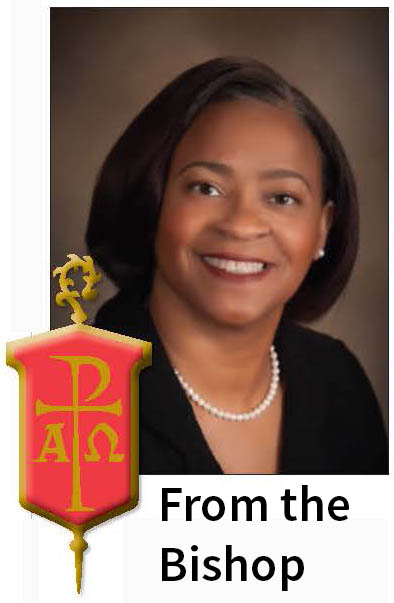
May 29, 2020
A Call to Action on Systemic Racism
Dear Virginia Annual Conference:
On Memorial Day, when the world was honoring and remembering all military men and women for their sacrifice to this country, Mr. George Floyd, another African-American man, while handcuffed and in police custody, was pleading for his life. His dying statement, “I can’t breathe,” rings again in my ears just as it did in 2014 when Eric Garner used those same words as he was dying from being held in a chokehold by a New York Police Department officer.
As I have reflected since Monday, I find my emotions range from sadness to anger to disbelief. I ask myself the simple questions – “How long, Lord? How long, Lord?”
Isn’t it enough that we are fighting a pandemic and at the same time fighting life’s other challenges? Isn’t it enough that we witnessed the senseless death of Ahmaud Arbery in Georgia, the disturbing exchange between Christian Cooper and Amy Cooper in Central Park, and the barely-mentioned Breonna Taylor, who was killed by Louisville Metro Police Department officers executing a warrant at the wrong house in March?
When do we as children of God decide that God is calling us into action? When do we decide that mere words or social media interactions for a few days are just not enough?
When do we as children of God decide that the systemic racism in our society, whether manifested overtly or covertly, is a sin that hinders our relationship with Jesus Christ and is antithetical to the gospel?
When do we as children of God in the second largest annual conference in The United Methodist connection decide to have the crucial conversations and examine our own experiential and inherited stories of race and racism? I believe that everything in life begins and ends with the story you have accepted as truth about yourself and others. These stories shape our thinking, actions and assumptions about different races.
The lesson from these senseless deaths is that the fight to eradicate racism is not another person’s problem but humanity’s problem, and I believe that I’m not the only voice in the Virginia Annual Conference that wants to see real change and work toward the complete eradication of racism.
As the Resident Bishop of the Virginia Annual Conference of The United Methodist Church, I am requesting that leaders of the Virginia faith community join in a conversation about policing with Governor Ralph Northam. The requested conversation will focus on statewide community relationships and policing training and practices.
In addition, I would like to invite the people of the Virginia Annual Conference to join me in these call to action steps:
- We need informed clergy and laity to have authentic conversations about race and reconciliation in houses of worship, communities, and workplaces in which we acknowledge racism as a sin and actively pursue whatever is necessary to dismantle the injustices. One resource for starting that conversation is the Racial Justice Conversations Guide produced by the General Commission on Religion and Race;
- Community policing emphasizes working with neighborhood residents as partners in creating public safety. We can offer our support and involvement with law enforcement agencies that want to work with community residents to identify problems and collaborate on implementing solutions that produce meaningful results for the community; and
- We can encourage civilian participation in oversight of law enforcement in order to strengthen trust with the community. Every community should define the appropriate form and structure of civilian oversight to meet the needs of that community.
Continue to pray for the families of George Floyd, Ahmaud Arbery, and Breonna Taylor. Let us hold close the words of the Apostle Paul, who reminds us in Romans 12:21; “Do not be overcome by evil, but overcome evil with good.” (NKJV)
Peace and Blessings,
Bishop Sharma D. Lewis
cc: Governor Ralph Northam
Attorney General Mark R. Herring, Esq.
